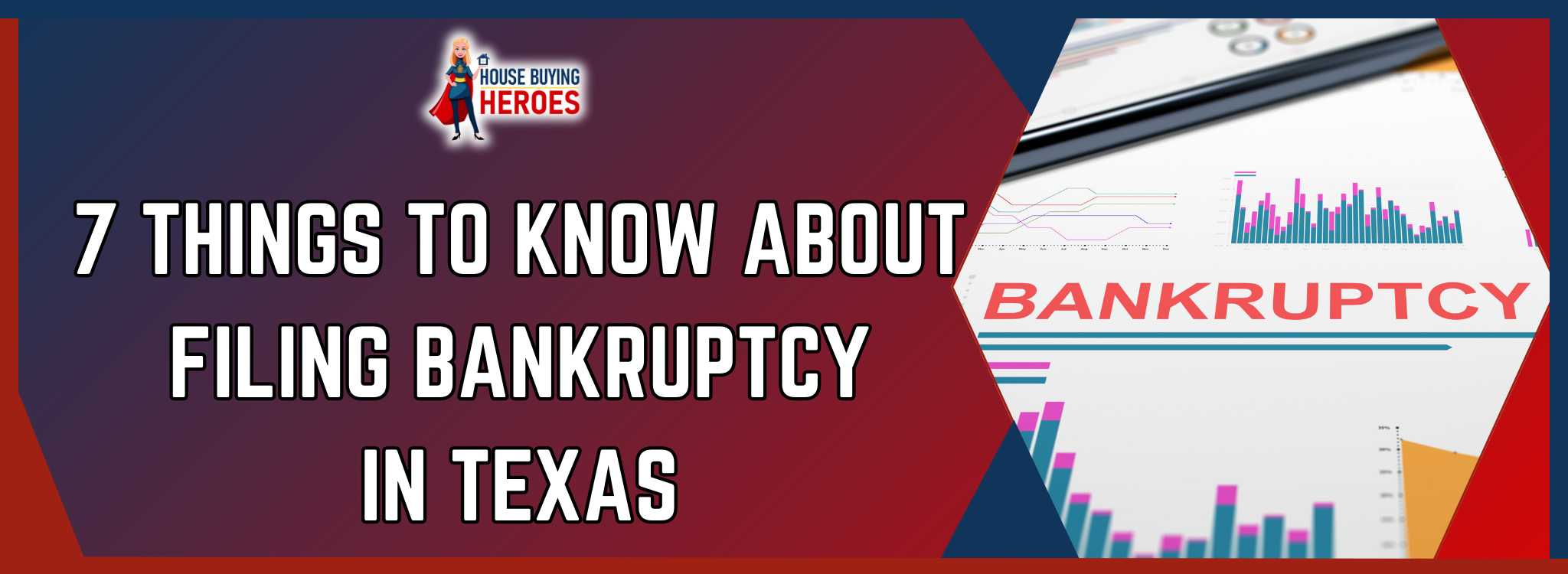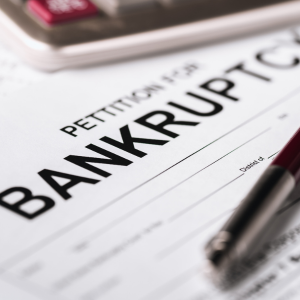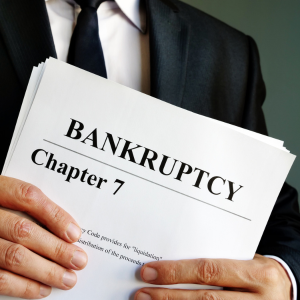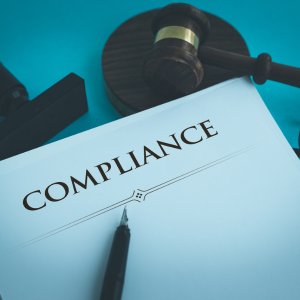
Key Elements and Considerations of Texas Bankruptcy
What are the Types of Bankruptcy You Can File in Texas?
In Texas, individuals looking for bankruptcy relief can choose from Chapter 7, Chapter 13, or Chapter 11. Each offers different ways to handle debts.
- Chapter 7 Bankruptcy Texas: Liquidation bankruptcy lets you clear unsecured debts by selling non-exempt assets. It’s best for those who can’t pay their debts and fit certain criteria.
- Chapter 13 Bankruptcy Texas: This type sets up a repayment plan over three to five years, letting you catch up on secured debts like a home mortgage or car loan.
- Chapter 11 Bankruptcy is generally for businesses, but individuals with large debts can also use it to reorganize without selling assets.
Knowing these options helps you pick the best one under Texas bankruptcy laws.
How does Chapter 7 differ from Chapter 13?
Chapter 7 and Chapter 13 offer different solutions based on your financial situation:
- Chapter 7 Bankruptcy involves selling assets to pay off unsecured debts. It is suitable for those with little disposable income and mostly unsecured debts.
- Chapter 13 Bankruptcy: Allows you to keep property and repay debts over time, including secured debts, helping protect your assets in a Texas bankruptcy.

Qualifying for Chapter 7 requires passing the means test, which checks whether one’s income is below the Texas median.
Is Chapter 11 an option for individuals?
Yes, Chapter 11 can be used by individuals, especially those with high debts or incomes who aren’t eligible for Chapters 7 or 13. It focuses on reorganizing debts rather than selling assets, allowing you to keep your belongings while paying creditors.
Who Qualifies for Chapter 7 Bankruptcy in Texas?
To qualify for Chapter 7 in Texas, you must pass the means test, which compares your income to the Texas median. If your income is below this, you may qualify. Chapter 7 can clear various unsecured debts, giving you a fresh start.
What is the means test?
The means test is required for Chapter 7 bankruptcy applicants. It checks if your income qualifies by comparing it to the median income in Texas. Passing is necessary for eligibility.
What income thresholds apply?
The income thresholds for the means test align with Texas median income levels, which change annually and are based on household size. You must be at or below these levels to qualify for Chapter 7.
How Do Exemptions Work to Protect Your Assets?
The Texas bankruptcy protections help keep your property safe while you file for bankruptcy. They let you keep certain sites from being sold:
- Texas Homestead Exemption protects your home’s value, ensuring your primary residence stays secure.
- Asset Protection in Texas Bankruptcy: Other exemptions include personal items, retirement funds, and vehicle equity.
Knowing these exemptions helps you keep necessary assets during bankruptcy.
Which properties are typically exempt?
In Texas, commonly exempt properties include:
- Homestead: Fully protected by the Texas homestead exemption.
- Personal Property: Up to a set value, including furniture and clothing.
- Retirement Accounts: Fully safeguarded for your future financial security.
These exemptions help you stay stable while managing secured debts and other obligations.
How does the Texas homestead exemption help?
The Texas homestead deduction protects your main home very well. After securing this property, you can deal with your secured bills in other ways.
If you want to know more about or get help with Texas bankruptcy, talk to professionals who have experience and can give you advice that fits your needs. You can get help by going to our website or calling us directly.
Financial Impact and Recovery After Bankruptcy
How Does Filing Bankruptcy Affect Your Credit Score?
Especially in Texas, filing for bankruptcy can seriously lower your credit score. Your credit record shows bankruptcy for up to ten years. This impacts your credit history and makes getting new credit tough. In Texas, the effects of bankruptcy can vary, but you will likely see a big drop in your credit score. Bankruptcy suggests high risk to lenders. Knowing how this process works is important, and checking your credit report for mistakes after filing is important.
How Can You Rebuild Your Credit After Bankruptcy?
Rebuilding credit after bankruptcy in Texas takes effort and good financial habits. One helpful method is to get a secured credit card. These cards require a deposit and can help you build a good credit history if you use them wisely. Paying your bills on time is also key. On-time payments are reported to credit agencies and can help raise your credit score. Credit counseling in Texas can guide you in managing finances after bankruptcy. After a bankruptcy discharge, regularly check and correct any errors on your credit report to help your recovery.
What Costs Are Associated with Filing for Bankruptcy?

Knowing the cost of bankruptcy in Texas is crucial for those considering it. There are standard filing fees, which vary by the type of bankruptcy. Legal representation is advised to handle the complexities of bankruptcy law; hiring a bankruptcy attorney in Texas will add to the expenses. Whether you handle it yourself or pay a professional, you may also pay expenses for drafting your Texas bankruptcy petition. Understanding these expenses and planning will help define financial expectations during bankruptcy.
For more help with bankruptcy and improving your finances, talk to local experts who can provide personal advice. If you have questions or need more info, contact us through our contact page or comment below. Explore other resources or connect with us on social media for ongoing support.
Legal Procedures and Protection Mechanisms
How Does Bankruptcy Halt Collections and Foreclosures?
Filing for bankruptcy can immediately stop debt collection efforts, such as foreclosures, through what’s known as an automatic stay. This legal step temporarily holds all collection activities, giving debtors time to reorganize their finances without worrying about creditors’ actions. Knowing creditor rights in Texas is important, as some may challenge the stay. However, during the stay, foreclosures must stop, allowing homeowners to explore ways to recover financially. Following the correct bankruptcy procedures is key to ensuring the stay remains in place and provides full protection.

What is the Role of a Bankruptcy Trustee?
Managing the bankruptcy procedure in Texas depends much on bankruptcy trustees. The trustee the court names primarily oversees asset management and guarantees the equitable distribution of the debtor’s property among creditors. The trustee maintains the debtor’s estate, analyzes claims, and, should necessary action be taken to collect assets, can. Understanding the trustee’s duties helps debtors negotiate the bankruptcy procedure so they satisfy all criteria and get relief from crushing debt.
What Alternatives to Bankruptcy Might Be Considered?
Texans have several options besides bankruptcy when looking for financial recovery. Debt consolidation lets individuals combine multiple debts into one payment, often with a lower interest rate. Credit counseling in Texas provides expert advice on budgeting and managing debt, helping people regain control of their finances. Exploring different debt relief options can also help ease financial pressure. Proactive financial planning can offer a sustainable path forward for those wanting to avoid bankruptcy.
Working with Legal Professionals

What Should You Expect from a Bankruptcy Attorney?
If you’re considering filing for bankruptcy in Texas, you’ll want to talk to a skilled bankruptcy attorney. They should provide straightforward legal advice on bankruptcy specific to your case. During your bankruptcy consultation in Texas, the attorney will review your financial situation and explain your options under Texas law. You can expect professionalism, privacy, and a strategy tailored to help you recover financially.
What Documents Do You Need for Filing Bankruptcy?
Filing for bankruptcy involves preparing and gathering the right documents. Here are the key ones you’ll need:
- Bankruptcy Petition: This is the main document that starts the bankruptcy process.
- Bankruptcy forms: These are specific to Texas and cover your assets, debts, income, and expenses.
- Disclosure statements: These detail any recent financial transactions or asset transfers.
- Supporting documentation: This includes tax returns, pay stubs, bank statements, and property deeds.
Accurate bankruptcy petition preparation is important because the correct information can greatly influence your case’s outcome.
How Can Professional Help Aid in Avoiding Mistakes?
Handling bankruptcy without expert help can lead to common bankruptcy mistakes. A seasoned attorney will offer valuable legal advice and provide a thorough bankruptcy consultation in Texas to address your unique concerns. They will help you meet all legal requirements and deadlines, reducing the risk of errors affecting your financial relief.
For personalized help, reach out to our experts at House Buying Heroes. They can connect you with professionals who will make your bankruptcy process smoother.
Please share your feedback below if you have questions or need further help. For more information, explore related articles and resources linked throughout this section. Follow us on social media for updates on financial advice and support.
Decision-Making and Long-term Considerations
How Do You Determine if Bankruptcy is the Right Option?
To decide if bankruptcy is right, look closely at your financial situation. Before considering bankruptcy, check out all your debt relief options, like talking to creditors or trying debt consolidation. It’s important to know Texas bankruptcy laws because they differ from federal ones. Make a detailed list of your debts, income, and expenses. Getting advice from a bankruptcy attorney in Texas can help you understand the consequences. A bankruptcy consultation in Texas can guide you on whether this step matches your financial goals.
What Long-term Effects Does Bankruptcy Have?
Bankruptcy can affect you in the long term, especially when it appears on your Texas credit report. It usually stays on your credit report for up to ten years, which can impact future loan applications. Although a bankruptcy discharge can give you a fresh start, it might also limit career opportunities in jobs that closely examine financial responsibility. Knowing the consequences of bankruptcy in Texas, including limits on borrowing and financial activities, is crucial. Weigh these effects against the immediate relief that bankruptcy might offer.

How Can You Ensure Compliance with Texas Bankruptcy Laws?
To follow Texas bankruptcy laws, you need to understand state-specific rules. Start by getting familiar with the bankruptcy process in Texas, including what you need to file and key timelines. Stick to the bankruptcy discharge timeline and keep up with ongoing obligations like court payments. Working with a knowledgeable attorney can make navigating these challenges more manageable. By staying informed and compliant, you can lower the chances of legal issues and go through the bankruptcy process more smoothly.
FAQs:
What are the essential steps to file for bankruptcy in Texas?
Filing for bankruptcy in Texas involves several key steps: checking if you qualify, gathering financial records, completing credit counseling, filling out necessary forms, submitting them to a Texas bankruptcy court, and meeting with a trustee. Knowing which debts can be discharged and any exemptions to your property is crucial.
Can bankruptcy in Texas affect my student loans?
Usually, student loans cannot be discharged in a Texas bankruptcy unless you prove undue hardship, which is challenging. Consult a legal expert to explore possible solutions or alternatives.
What are common mistakes to avoid when filing for bankruptcy in Texas?
Avoid mistakes like not listing all assets and debts, missing credit counseling deadlines, and misunderstanding reaffirmation agreements. Proper guidance is needed to follow procedures correctly.
How does bankruptcy impact my mortgage in Texas?
Bankruptcy can temporarily stop foreclosure, but keeping your home depends on your case details and the type of bankruptcy filed. Discuss your case with a specialist to understand your options and obligations toward your mortgage lender.
What legal protections are provided by bankruptcy courts in Texas?
Bankruptcy offers an automatic stay that stops creditors from collecting debts, including wage garnishments and lawsuits. This protection lasts until discharge or dismissal, allowing you time to reorganize finances or propose repayment plans.
What should I know about creditor rights during bankruptcy in Texas?
Creditors can object to certain discharges or suggest alternate repayment plans. Understanding these rights helps in preparing a defense or negotiation. Legal advice is recommended to navigate these challenges.
Are there specific considerations for joint bankruptcy filings in Texas?
Joint bankruptcy in Texas can benefit married couples with shared debt, potentially easing the process. However, both must meet income requirements and agree to proceed together.
How will bankruptcy in Texas affect my credit report and future borrowing?
Bankruptcy can stay on your credit report for up to 10 years, affecting your credit score and ability to borrow. However, you can rebuild credit over time by maintaining good financial habits after discharge.
Key Insights
- Learn the 7 essential things about bankruptcy in Texas, covering important facts and tips to help you through the process.
- Access expert bankruptcy advice for TX residents, with guidance on filing and key details about exemptions and dischargeable debts.
- Here, you can find comprehensive information on filing TX bankruptcy, including eligibility requirements, fee structures, and common myths.
- Understand the Texas bankruptcy legal process, including reaffirmation agreements, priority debts, and the discharge timeline.
- Discover how bankruptcy affects your credit report in Texas, and get tips on avoiding mistakes that can lead to dismissal.
- Explore creditor rights, wage garnishment laws, and landlord-tenant issues related to Texas bankruptcy.
- Learn about joint bankruptcy filings, bankruptcy records, and the role of federal courts in Texas.
- Stay updated with news on seminars, judicial conferences, and developments in TX bankruptcy law.
For more help or personalized advice, contact us or visit our blog for detailed guides and updates.
This information applies to Texas and its cities, including Irving, Palestine, and Spring. For assistance or questions, please call us at (855) 563-4376. You can also visit our website at House Buying Heros for more details.


